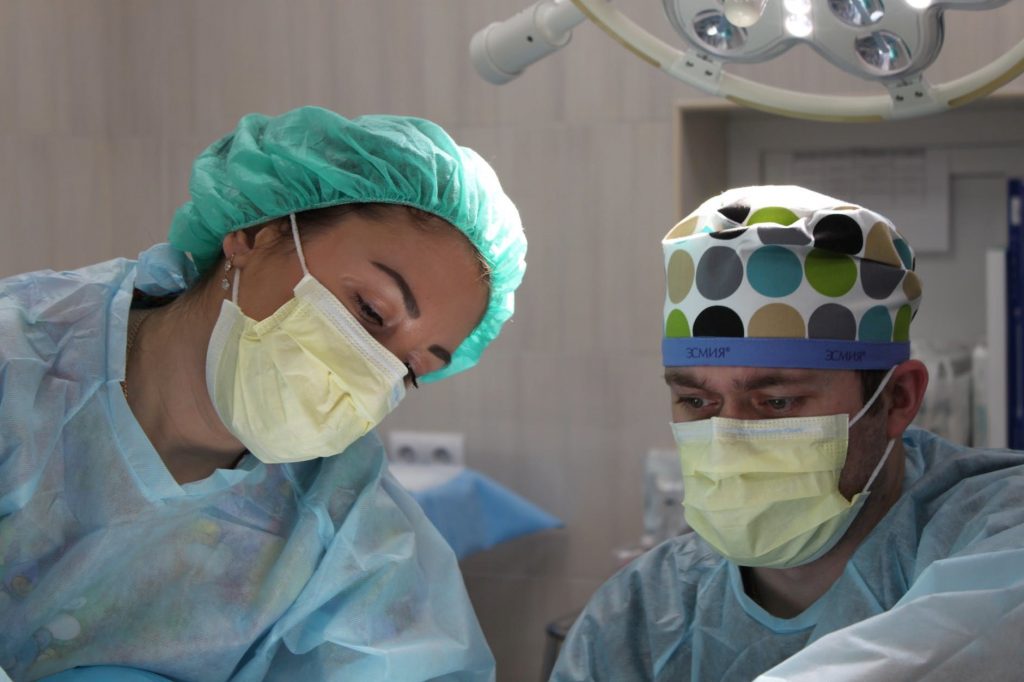
Hernia is basically a condition when an organ makes its way through a narrow opening in the tissue or muscle. For example, an intestines may erupt a weakened area in the abdominal wall.
Hernias are commonly formed in the abdomen area, but can also surface in the areas like belly button, groin and upper thighs. Some forms of Hernia are not life-threatening, depending upon the symptoms and size, but they do not subdue on their own as well. Many a times they may need a surgery to prevent possibly dangerous complications. This is one of the reasons why physicians and specialists often recommend immediate surgery to their patients.
When repairing hernia through a surgical procedure, the bulge is pushed back inside the body part, trying to keep it there.
According to a research, Hernia is one of the most common surgeries to be performed. As per the research, more than three hundred thousand hernias in the abdominal or ventral region are repaired per year in the United States alone.
So let’s find out when would someone need a Hernia surgery?
Following are some of the reasons why your practitioner will most likely recommend you a hernia surgery:
- The tissue in the abdominal region such as the intestine becomes trapped in the abdominal wall. This symptom is known as incarceration. If not taken seriously or left untreated, it might lead to strangulation situation. And when it leads to that the blood supply to the muscles and tissues gets adversely affected. This condition can cause a permanent damage and is a surgical emergency. Organs that get strangulated such as your intestines, can lead to other life-threatening symptoms if not removed quickly. Immediately call your physician if you have symptoms like nausea, fever or severe pain or if the hernia has turned purple or red.
- The hernia causes discomfort or pain, or is getting larger.
- The hernia vanishes when you lie down, or goes back when you push it into your belly.
Mostly all adults and children may experience hernia surgery once in a lifetime. If you are gravely ill and have serious symptoms, you may need a surgery. However, let your physician decide as he/she is the best person to weigh the advantages and disadvantages of the surgery.
Some quick facts about hernia repair:
- Hernias that are smaller in size may show no symptoms and may not require any repair.
- Usually, hernia surgeries are known as hernioplasty or herniorrhaphy.
- Hernia repairs are usually day surgeries, people often get discharged just after a few hours.
- Hernia repair surgeries are considered to be fairly effective and safe.
Types of Hernia Surgery
Once you figure out the status of your Hernia, your physician will put two options of hernia repair surgery in front of you. Both surgeries are performed at a surgery center or hospital. People usually leave the facility center for home the very same day. Following are the types of surgeries.
Open surgery: In this form of surgery you’ll be given a general anesthesia before open repair surgery. The surgeon will make an incision (cut) to open the area. He will then push the hernia back in place very gently, sew it off, or simply remove it. Once this is done, the surgeon will close the fragile area of the muscle with stitches. For hernias that are big in size, the surgeon might add an artificial piece of flexible mesh for some support. This artificial support will prevent the hernia from coming back.
Laparoscopic surgery: In Laparoscopic surgery, the abdomen is inflated with a gas which is totally harmless. This process gives the surgeon a better understanding and view of the organs. The surgeon will make a few cuts or incisions near the hernia. A thin tube is then inserted with a small camera at the end of the tube (laparoscope). The images that are extracted from the camera allow the surgeon to repair hernia with mesh. General anesthesia is required for laparoscopic surgery too. Usually recovery is relatively faster when a hernia is repaired through laparoscopic surgery.
The type of surgery that a patient may require is usually a doctor’s prerogative which further depends on the type, location and size of the hernia. The surgeon also keep in mind the patient’s overall health, age and lifestyle.
Risks associated with Hernia repair surgeries
Usually hernia repair is a safe surgical procedure. But like rest of the surgeries, getting your hernia removed comes with a handful of complications. Such as:
- Infection caused by the wound.
- Development of blood clots:They usually develop because the body is under the effect of anesthesia and you don’t get to move the body for quite some time.
Non-Surgical Hernia treatments
- Another form of treating hernia which doesn’t require any surgical procedure is by wearing binder, corset or truss. These supportive undergarments are recommended by the physician itself. These undergarments apply gentle pressure on the hernia and prevent it from getting displaced. They may help in easing the pain and discomfort.
- It is highly important to identify the early signs of hernia and treat it accordingly through surgical or non-surgical treatment so that you can lessen the chances of any possible strangulation and life-threatening complications.
